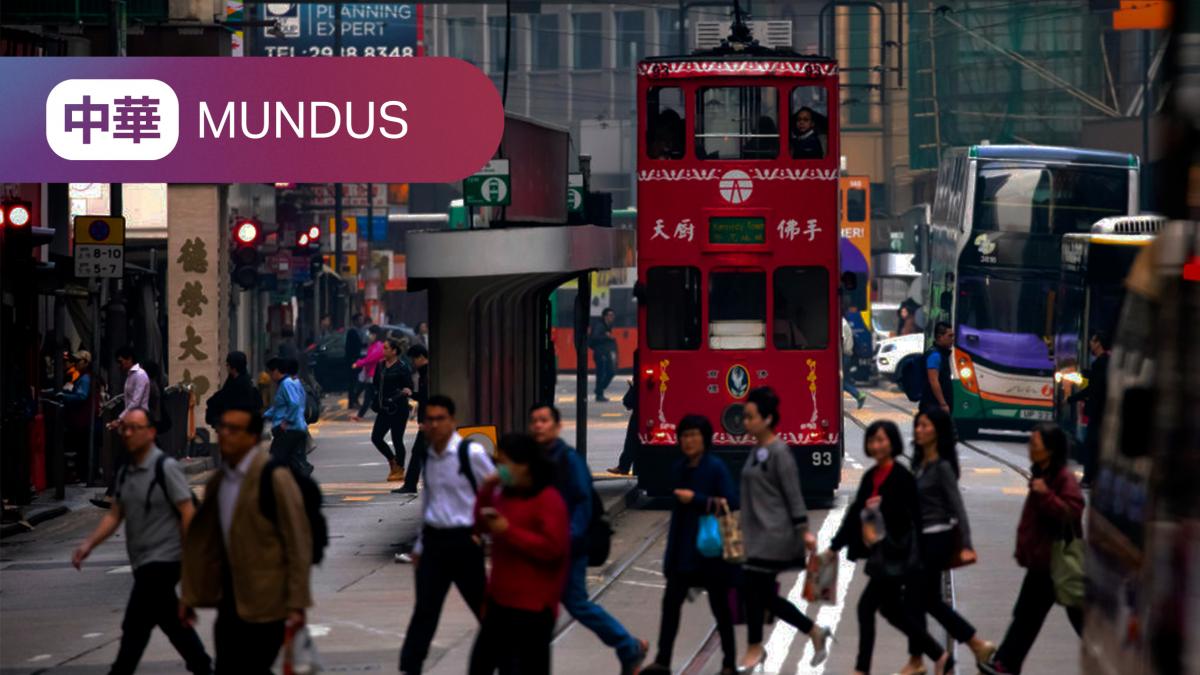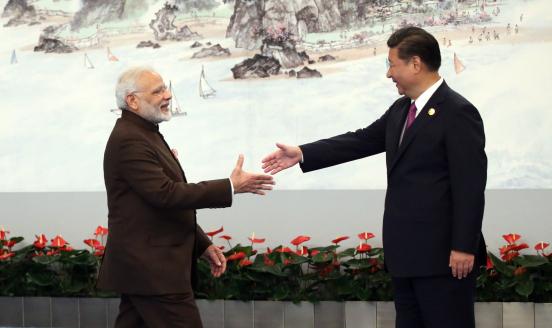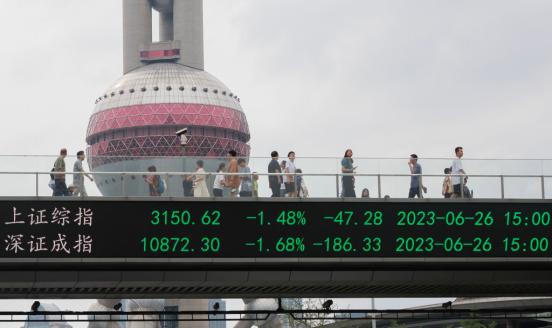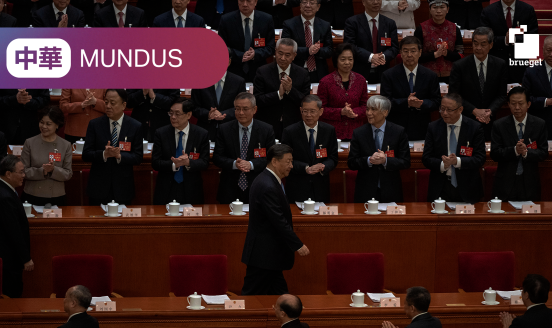China-India relations and their impact on Europe


As the two most populous countries in the world with distinctly different civilisations, India and China are incredibly important economies for Europe and the world. India and China’s bilateral relations with other countries will affect the distribution of power worldwide and could dictate whether there will be a bipolar or multipolar international system in years to come.
In terms of economic size, the European Union is larger than India. However, there are signs that India’s contribution to global growth will soon outpace that of the EU. If there is a country that can determine the future of a multipolar world, rather than a bipolar world, it will be India. The same could be said about the EU bloc in terms of strategic importance for a multipolar world. Because of their similar level of importance, Europe must focus more closely on India’s relations with China.
Turbulent China-India relations
Economic relations between China and India have never been easy. India attempted to reform and open the economy in 1991 but the process was not as successful as China’s attempt. India’s opening-up was discontinued on several occasions and as a result, India’s growth continued to trail below that of China until quite recently. One of the key differences between the two economies was their level of savings.
China’s higher savings threshold allowed the country to self-finance a massive upgrade in logical and transport infrastructure. This supported the development of manufacturing by foreign direct investment to become the export engine of the world. India, instead, has only recently - especially since President Modi was re-elected - stepped up its efforts to attract foreign direct investment in the manufacturing and infrastructure sector.
India’s quest for foreign investment is happening at a time when China has become the largest provider of infrastructure in emerging countries. China’s strategy - under the mantra of the Belt and Road initiative (BRI) – has so far been shunned by India’s government. In fact, India is one of the key emerging economies which has preferred to stay away from the BRI and has expressed serious doubts about the project.
For example, India criticised China’s support to Pakistan in areas where there are still territorial disputes between India and Pakistan. Amid heightened security concerns after a border crisis in 2020, India has also kept Huawei out of 5G trials, banned hundreds of Chinese apps and even stopped several Chinese companies from investing in India. India, which also long avoided regional trade agreements, recently decided to join the US-led Indo-Pacific Economic Framework (IPEF), sending a clear signal to China on their intentions.
Despite the Mody administration’s efforts to stem off Chinese influence on the Indian economy, the reality is that India’s dependence on Chinese imports is only increasing, while Indian exports to China remain stagnant. India’s ballooning trade deficit with China, which reached US$64.5 billion in 2021, has increased even more in 2022. Bilateral trade between the two is not only unbalanced because of this growing deficit but also because of sector specialisation, and Chinese FDI in technology. India’s meagre exports are concentrated in food and primary goods while China exports manufactured goods with an increasing value add: phones, machinery, solar panels and electric vehicles are all prevalent products exported.
Growth opportunities for India
Due to the ongoing reshuffling of the global supply chain pushed by geopolitical tensions, zero-covid policies in China and a rationale of diversification needs, India is emerging as a relevant global manufacturing alternative. Its population size and labour pool could allow for large economies of scale, if improvements in infrastructure and a more accommodating environment for FDI are established. There is a growing interest from companies such as Apple and Foxconn to diversify and many are therefore keen to explore India’s manufacturing future.
India’s own industrial policy strategy is another important development, both because it could bring memories of the country’s past unsuccessful attempts to develop through inward looking policies, but also because they could be mirroring China’s own industrial policies.
In a nutshell, China-India economic relations have two main axes. First, the increasingly unbalanced trade relation in China’s favour and second, India’s economic model becoming too close to that of China, at least as far as industrial policy is concerned.
Against such a backdrop, it is important to note that India is becoming increasingly relevant for the EU, not only as a potentially relevant trading partner, but also as a key force in shaping a more multipolar world. With China as a global power, the relations between India and China are very important for Europe, especially since they are neither stable nor very clear. Developments such as India’s reactions to China’s BRI, as well as the border skirmish in 2020 reflect this.
Both countries also share a seemingly aligned position on Russia’s invasion of Ukraine in so far as both countries have remained neutral. Unpredictability in relations between India and China make it difficult for Europe to assess ongoing tensions. Therefore, they should not only pay closer attention to India’s potential as an economic power, but to how India’s relations with China could influence Europe and the world as a whole.
ZhōngHuá Mundus is a newsletter by Bruegel, bringing you monthly analysis of China in the world, as seen from Europe.
This is an output of China Horizons, Bruegel's contribution in the project Dealing with a resurgent China (DWARC). This project has received funding from the European Union’s HORIZON Research and Innovation Actions under grant agreement No. 101061700.




